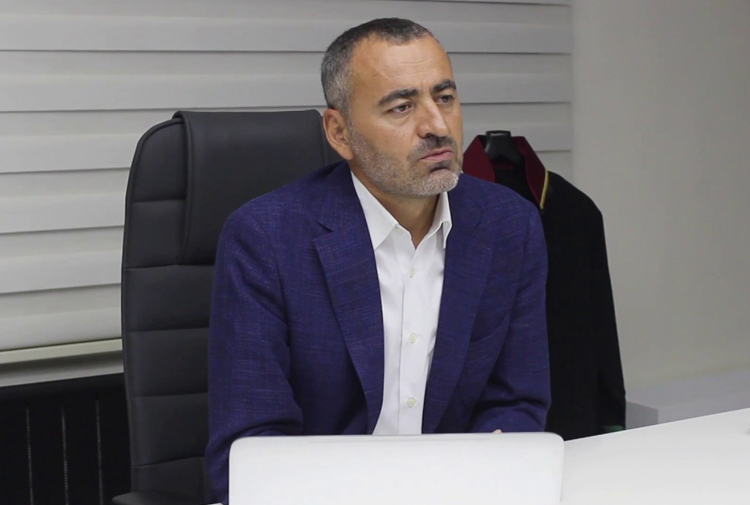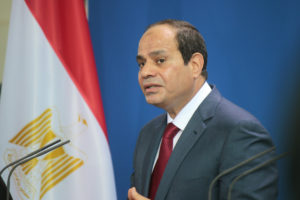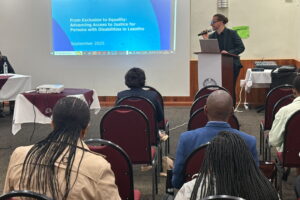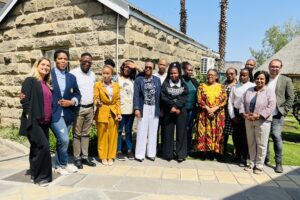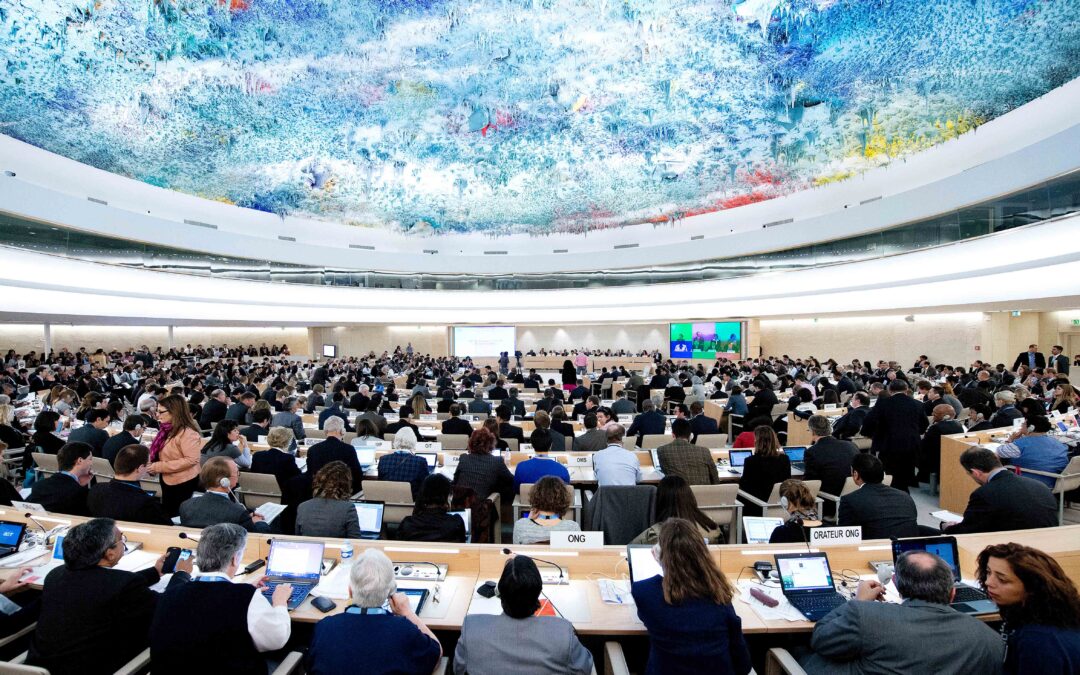
Jun 18, 2021 | Agendas, Events, News
On 22 June, the ICJ, Human Rights Watch, the Cairo Institute for Human Rights Studies, the Center for Reproductive Rights and the International Planned Parenthood Federation, with the co-sponsorship of the Kingdom of Spain, organize an online event on the 10th anniversary of the Council of Europe’s Convention on preventing and combating violence against women and domestic violence (Istanbul Convention).
This side event at the margin of the 47th regular session of the UN Human Rights Council has convened expert speakers to illustrate the situation of human rights protection to combat and prevent violence against women in Europe, how the Istanbul Convention has crucially contributed to this goal and the obstacles to its effective implementation.
Preventing and combating violence against women, as well as its causes and consequences, are a priority of the UN Human Rights Council. While UN standards are central to achieving this goal, regional standards have to date provided a key contribution in this field. The Council of Europe’s Istanbul Convention is the most far-reaching international treaty specifically designed to counter violence against women.
On 11 May 2021, the Istanbul Convention turned 10 years old. It is now time to take stock of the achievements that this Convention has contributed to as well as the challenges ahead, including countering the spread of misinformation about the Convention and ensuring states continue to champion its principles and standards.
Women and girls are still suffering the aftermaths of the COVID-19 crisis. The pandemic effects have shown a worrying increase on violence against women. The universalization of the Istanbul Convention is more important than ever because the pandemic has unveiled the “permanent shadow pandemic” that women and girls are suffering around the world.
When: Tuesday June 22nd, 13:00 – 14:00 CEST
Where: Zoom
Language: English
Panelists
- María Isabel Sanchís, Senior Advisor, Office of the Commissioner on Violence against Women of the Government of Spain
- Dubravka Šimonović, UN Special Rapporteur on violence against women, its causes and consequences
- Dame Silvia Cartwright, former Governor General of New Zealand, former CEDAW member, Commissioner of the International Commission of Jurists
- Professor Feride Acar, former chairwoman of CEDAW and GREVIO
- Hillary Margolis, Senior Researcher, Women’s Rights Division, Human Rights Watch
Moderator Massimo Frigo, UN Representative, ICJ
To confirm your participation and receive connection details, please RSVP to Massimo Frigo, email: Massimo.Frigo@icj.org .
Event-Invitation-Side Event-IstanbulConvention-UN-HRC47-final-2021-eng (download the event leaflet)


Jun 18, 2021 | News
European Union affairs ministers should put the governments of Hungary and Poland on notice that there is no place for attacks on the rule of law in the EU and step up scrutiny of their human rights-abusive policies, the International Commission of Jurists (ICJ), Amnesty International, Human Rights Watch, the International Federation for Human Rights (FIDH), the Open Society European Policy Institute (OSEPI) and Reporters Without Borders (RSF) said today.
Ministers from EU member states meeting in the General Affairs Council session on June 22, 2021 will discuss the situations in Poland and Hungary under the Article 7 procedure. Article 7 is the mechanism provided for in the EU treaty to hold accountable governments whose actions threaten the bloc’s rule of law, human rights, and democratic principles.
“The EU should respond to the critical situation in Hungary and Poland by using the powers available to it under Article 7 TEU to defend human rights and the rule of law. We hope that EU Ministers will finally send a strong signal to Poland and Hungary next week that undermining these values cannot be accepted,” said Róisín Pillay, Director of the ICJ Europe and Central Asia Programme.
Resuming hearings on the situations in Hungary and Poland under Article 7 is a strong signal from the Council that violations of EU principles will not go unnoticed within the Union, the organizations said. But EU ministers have a responsibility to make up for the time lost and show readiness to take further action as the situations in both countries continue to deteriorate.
Read the full statement here: euart7june17-ENG-2021
Further information:
The European Commission invoked Article 7 in December 2017 for the first time since its creation in response to the dramatic erosion of judicial independence in Poland by the Law and Justice (PiS) Party government. But the EU Council, consisting of the member states, has not held a formal hearing regarding the situation since September 2018.
The European Parliament triggered article 7 in September 2018 for Hungary because of the repeated deliberate attacks on democratic institutions and human rights by the Fidesz-led government, but the Council has not convened a hearing on the matter since December 2019. EU officials contended that discussions related to Article 7 could not take place during the Covid-19 pandemic, allegedly because EU ministers could not meet in person during this period.
While EU action has stalled Poland’s government has continued to strengthen its grip on the judiciary. Many judges and prosecutors have faced arbitrary disciplinary proceedings for speaking up against problematic judicial reforms. The government has used a politically compromised Constitutional Tribunal to bypass parliamentary objections to its efforts to undermine independent institutions and erode rights across the board. The concerns over the functioning of the Tribunal include, in particular, mishandling of cases by its president and unlawful change in the composition of the already designated hearing benches.
In October 2020, at the behest of the Polish government, the Constitutional Tribunal severely undermined access to sexual and reproductive rights for women in Poland by extending the existing ban on abortion to include cases of “severe and irreversible fetal defect or incurable illness that threatens the fetus’ life”. In April, the government used the same tribunal to discontinue the mandate of the country’s human rights Ombudsman, despite the delays in the appointment of a successor. The government is also using the Constitutional Tribunal to seek decisions on the validity of the Istanbul Convention on preventing violence against women and to try to undermine the binding nature of decisions by the EU Court of Justice on Polish law.
In Hungary, the government used the Covid-19 pandemic as a pretext to intensify its attacks on the rule of law and public institutions, increase executive power, and limit human rights, including the rights to freedom of expression, information and peaceful assembly. Hungary finally abided by the June 2020 EU Court decision by repealing a 2017 law forcing civil society organizations receiving over 20,000 EUR per year in foreign funds to register as foreign-funded. But at the same time the government introduced a new bill requiring the national State Audit Office to conduct annual financial inspections of civil society organizations that report more than around 55,000 EUR, with the risk that it could create a new method to demonize and obstruct the work of watchdog groups. The draft bill leaves untouched the controversial 2018 law criminalizing groups giving assistance to asylum seekers.
In July 2020, the editor-in-chief of Hungary’s largest online independent daily, Index.hu, was fired as a result of a financial takeover of the company controlling its revenues by a person with close links to the country’s ruling party. In September, the Media Council, a broadcast regulator tied to the executive after controversial changes passed early in the decade, revoked the frequency for the independent Budapest radio station Klubradio, forcing it off the air. On June 9, the European Commission opened a new legal proceeding against Hungary on the basis that the decision to take Klubradio off the air was discriminatory and non-transparent.
Civil society groups in Poland, Hungary and elsewhere in the EU have criticized the European Council and European Commission for failing to uphold the bloc’s founding values of respect for human rights and the rule of law in countries that breach them.
In December, the EU established a new mechanism conditioning EU funding upon respect for the rule of law, but both the European Commission and the Council have succumbed to Hungary and Poland’s blackmailing and announced they would not start enforcing the measure until autumn. On June 10, the European Parliament took the European Commission to Court if it further delays the implementation of the mechanism.
European ministers should continue to convene regular hearings on the situations in Poland and Hungary and take all steps available under Article 7 to hold both governments to account for violating the EU’s core values. These should include adopting specific rule-of-law recommendations that Poland and Hungary’s governments should carry out by a set deadline and, absent any concrete steps toward compliance, work toward the required four-fifth vote to determine that there is a clear risk of a serious breach of the values protected by the EU treaty. Such a determination would open up the possibility of sanctions that the Council could adopt, by unanimity, to react to this breach.
For more information please contact:
Karolína Babická, +32475462067, karolina.babicka@icj.org
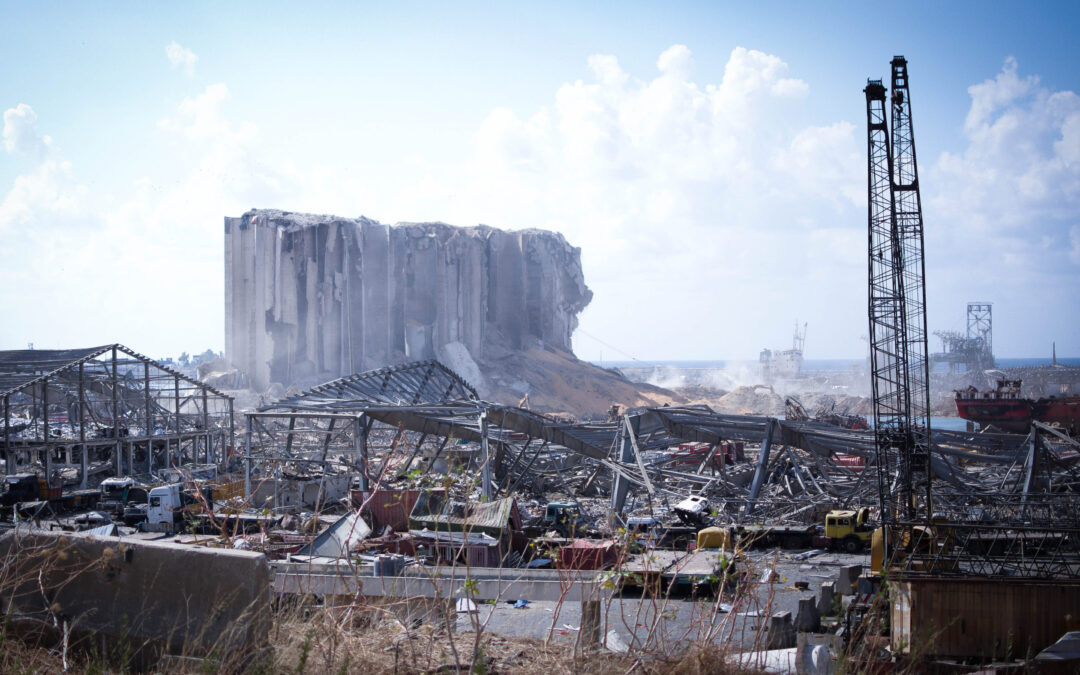
Jun 15, 2021 | Human Rights Council, News, Work with the UN
To the Permanent Representatives of Member and Observer States of the United Nations Human Rights Council,
Excellencies,
We, the undersigned Lebanese and international organizations, individuals, survivors, and families of the victims are writing to request your support in the establishment of an international, independent, and impartial investigative mission, such as a one-year fact-finding mission, into the Beirut port explosion of August 4, 2020. We urge you to support this initiative by adopting a resolution establishing such a mission at the Human Rights Council.
هذه الرسالة متاحة باللغة العربية أيضاً
On August 4, 2020, one of the largest non-nuclear explosions in history decimated the port and damaged over half the city. The Beirut port explosion killed 217 people, including nationals of Lebanon, Syria, Egypt, Bangladesh, Philippines, Pakistan, the Netherlands, Canada, Germany, France, Australia, and the United States. It wounded 7,000 people, of whom 150 acquired a physical disability, caused untold psychological harm, and damaged 77,000 apartments, forcibly displacing over 300,000 people. At least three children between the ages of two and 15 lost their lives. Thirty-one children required hospitalization, 1,000 children were injured, and 80,000 children were left without a home. The explosion affected 163 public and private schools and rendered half of Beirut’s healthcare centers nonfunctional, and it impacted 56% of the private businesses in Beirut. According to the World Bank, the explosion caused an estimated US$3.8-4.6 billion in material damage.
The right to life is an inalienable and autonomous right, enshrined in the International Covenant on Civil and Political Rights (ICCPR) (article 6), which Lebanon ratified in 1972. The Human Rights Committee, which interprets the ICCPR, has stated that states must respect and ensure the right to life against deprivations caused by persons or entities, even if their conduct is not attributable to the state. The Committee further states that the deprivation of life involves an “intentional or otherwise foreseeable and preventable life-terminating harm or injury, caused by an act or omission.” States are required to enact a “protective legal framework which includes criminal prohibitions on all manifestations of violence…that are likely to result in a deprivation of life, such as intentional and negligent homicide.”
The facts as currently known suggest that the storage of more than 2,700 tons of ammonium nitrate alongside other flammable or explosive materials, such as fireworks, in a poorly secured hangar in the middle of a busy commercial and residential area of a densely populated capital city likely created an unreasonable risk to life.
Since the explosion, a number of official documents were leaked to the press, including official correspondence and court documents that indicate customs, port, judicial, and government officials as well as military and security authorities had been warned about the dangerous stockpile of potentially explosive chemicals at the port on multiple occasions since 2013.
Further, the Human Rights Committee General Comment No. 36 on article 6 states: “The duty to protect by law the right to life also requires States parties to organize all State organs and governance structures through which public authority is exercised in a manner consistent with the need to respect and ensure the right to life, including by establishing by law adequate institutions and procedures for preventing deprivation of life, investigating and prosecuting potential cases of unlawful deprivation of life, meting out punishment and providing full reparation.” The investigations into violations of the right to life must be “independent, impartial, prompt, thorough, effective, credible, and transparent,” and they should explore “the legal responsibility of superior officials with regard to violations of the right to life committed by their subordinates.”
The impact and aftermath of the explosion also likely violated Lebanon’s international human rights obligations to guarantee the rights to education and to an adequate standard of living, including the rights to food, housing, health, and property. More notably, Lebanon can only uphold its obligation to provide effective remedy to the victims on the basis of a credible, effective, and impartial investigation whose findings would then be the basis for any effective remedy plan.
In August, 30 UN experts publicly laid out benchmarks, based on international human rights standards, for a credible inquiry into the August 4, 2020, blast at Beirut’s port, noting that it should be “protected from undue influence,” “integrate a gender lens,” “grant victims and their relatives effective access to the investigative process,” and “be given a strong and broad mandate to effectively probe any systemic failures of the Lebanese authorities.”
The domestic investigation into the Beirut blast has failed to meet those international standards. The ten months since the blast have been marked by the authorities’ obstruction, evasion, and delay. Human Rights Watch, Amnesty International, Legal Action Worldwide, Legal Agenda, and the International Commission of Jurists have documented a range of procedural and systemic flaws in the domestic investigation that render it incapable of credibly delivering justice, including flagrant political interference, immunity for high-level political officials, lack of respect for fair trial standards, and due process violations.
Victims of the blast and their relatives have been vocal in calling for an international investigation, expressing their lack of faith in domestic mechanisms. They claim that the steps taken by the Lebanese authorities so far are wholly inadequate as they rely on flawed processes that are neither independent nor impartial. This raises serious concerns regarding the Lebanese authorities’ ability and willingness to guarantee victims’ rights to truth, justice, and remedy, considering the decades-long culture of impunity in the country and the scale of the tragedy.
As we approach the one-year anniversary of the explosion, the case for such an international investigation has only strengthened. The Human Rights Council has the opportunity to assist Lebanon to meet its human rights obligations by conducting an investigative or fact-finding mission into the blast to identify whether conduct by the state caused or contributed to the unlawful deaths, and what steps need to be taken to ensure an effective remedy to victims.
The independent investigative mission should identify human rights violations arising from the Lebanese state’s failure to protect the right to life, in particular whether there were:
- Failures in the obligation to protect the right to life that led to the explosion at Beirut’s port on August 4, 2020, including failures to ensure the safe storage or removal of a large quantity of highly combustible and potentially explosive material;
- Failures in the investigation of the blast that would constitute a violation of the right to remedy pursuant to the rights to life.
The independent investigative mission should report on the human rights violated by the explosion, failures by the Lebanese authorities, and make recommendations to Lebanon and the international community on steps that are needed both to remedy the violations and to ensure that these do not occur in the future.
The Beirut blast was not an isolated or idiosyncratic incident. In the weeks following the explosion, two fires broke out at the port in scenes reminiscent of the fire that resulted in the Beirut blast, terrorizing the public. In February 2021, a German firm tasked with removing tons of hazardous chemicals left in Beirut’s port for decades warned that what they found amounted to “a second Beirut bomb.” If these substances caught fire, Beirut would have been “wiped out”, the interim port chief said.
It is time for the Human Rights Council to step in, heeding the calls of the families of the victims and the Lebanese people for accountability, the rule of law, and protection of human rights. The Beirut blast was a tragedy of historic proportions, arising from failure to protect the most basic of rights – the right to life – and its impact will be felt for far longer than it takes to physically rebuild the city. The truth of what happened on August 4, 2020, is a cornerstone in redressing and rebuilding after the devastation of that day.
The thousands of individuals who have had their lives upended and the hundreds of thousands of individuals who have seen their capital city disfigured in a most irrevocable way deserve nothing less.
List of signatories:
Organizations:
Access Center for Human Rights (Wousoul)
Accountability Now
ALEF – Act for Human Rights
Amnesty International
Anti-Racism Movement
Arab NGO Network for Development
Arab Reform Initiative
Basmeh & Zeitooneh
Baytna
Cairo Institute for Human Rights Studies (CIHRS)
Centre d’accès pour les droits de l’homme (ACHR)
Committee of the Families of the Kidnapped and Disappeared in Lebanon
Dawlaty
Gherbal Initiative
Gulf Centre for Human Rights
Helem
Human Life Foundation for Development and Relief (Yemen)
Human Rights Research League
Human Rights Solidarity (HRS)-Geneva
Human Rights Watch (HRW)
Human Rights Without Frontiers (HRWF)
Impunity Watch
International Commission of Jurists
Justice and Equality for Lebanon
Justice for Lebanon
Khaddit Beirut
Kulluna Irada
Lebanese-Swiss Association
Legal Action Worldwide
Legal Agenda
Liqaa Teshrin
Mada Network
Media Association for Peace (MAP)
Meghterbin Mejtemiin (United Diaspora)
Mwatana for Human Rights
National Youth for Lebanon Movement
PAX (Netherlands)
Peace Track Initiative
Project on Middle East Democracy (POMED)
Refugees=Partners Project
Samir Kassir Foundation
SEEDS for Legal Initiatives
Syrian Center for Media and Freedom of Expression – SCM
The Alternative Press Syndicate Group
The Foundation for Human Rights and Freedoms and Humanitarian Relief (IHH)
The International Center for Transitional Justice
The Lebanese Center for Human Rights (CLDH)
The Lebanese Diaspora Network (TLDN)
Tunisian League of Human Rights defense (LTDH)
UMAM Documentation & Research
Individuals:
Christophe Abi-Nassif – Lebanon Program Director, Middle East Institute
Nasser Saidi – President Nasser Saidi & Associates; Former Lebanese Minister of Economy & Industry
Randa Slim – Senior Fellow and Director of the Conflict Resolution and Track II Dialogues Program at the Middle East Institute
Survivors and Families of the Victims:
Alexandre Ibrahimcha, lost his mother Marion Hochar Ibrahimcha
Anthony, Chadia, Ava and Uma Naoum
Antoine Kassab, lost his father
Aya Arze Salloum
Carine Farran Sacy
Carine Tohme
Carine Zaatar
Carole Akiki
Cecilia and Pierre Assouad
Cedric el Adm, lost his sister
Charbel Moarbes
Charles Nehme, lost his father
Cybele Asmar lost her aunt Diane Dib
Fouad Rahme, lost his father
Georges Zaarour, lost his brother
Jean-Marc Matta
Jihad Nehme
Joanna Dagher Hayek
Karine Makhlouf, lost her mother
Karine Mattar
Laura Khoury
Lyna Comaty
Mireille el Khoury, lost her son
Myrna Mezher Helou, lost her mother
Nadine Khazen, lost her mother
Nicolas and Vera Fayad
Nicolas Dahan
Olga Kavran
Patrice Cannan, lost his brother
Patricia Haddad, lost her mother
Paul and Tracy Naggear, lost their daughter Alexandra Naggear
Reina Sfeir
Rénié Jreissati
Rima Malek
Rony Mecattaf
Sara Jaafar
Sarah Copland, lost her son Isaac Oehlers
Tania Daou Alam, lost her husband
Tony Najm, lost his mother
Vartan Papazian, lost his daughter-in-law
Vicky Zwein
Zeina Sfeir
Families of the following firefighters:
Charbel Hetty
Charbel Karam
Elie Khouzamy
Joe Akiki
Joe Andoun
Joe bou Saab
Joe Noun
Joseph Merhy
Joseph Roukoz
Misal Hawwa
Najib Hetty
Ralph Mellehy
Ramy Kaaky
Sahar Fares
Contact:
Said Benarbia, Director of the ICJ’s Middle East and North Africa programme, email: said.benarbia@icj.org phone number: +41 79 878 35 46
Asser Khattab, Research and Communications Officer at the ICJ’s Middle East and North Africa programme, email: Asser.khattab(a)icj.org
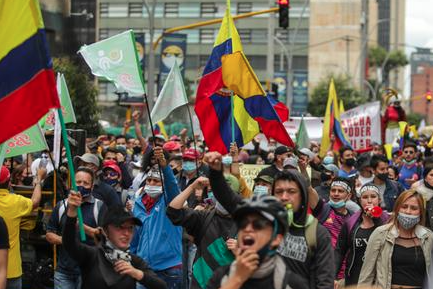
Jun 5, 2021 | Noticias
Las autoridades colombianas deben impedir de manera inmediata que los funcionarios encargados de hacer cumplir la ley utilicen fuerza excesiva en respuesta a las protestas. Además, deben retirar las funciones de mantenimiento del orden público que se les han asignado a las fuerzas militares, dijo hoy la CIJ.
Durante el transcurso de las actuales protestas, que se siguen en contra de las actuales condiciones sociales y culturales, múltiples organizaciones de derechos humanos y de la sociedad civil han documentado violaciones masivas a los derechos humanos, incluidos casos de tortura y malos tratos, violencia sexual, ejecuciones extrajudiciales y desaparición forzada.
“Los reportes de violencia y uso excesivo y, frecuentemente innecesario, de la fuerza por parte de los agentes encargados de hacer cumplir la ley, son parte de un fracaso más amplio de las autoridades de adoptar medidas efectivas para proteger y garantizar el derecho a la vida y el derecho a la protesta pacífica”, dijo Carolina Villadiego, Asesora Legal de la CIJ para América Latina.
Según Indepaz una organización no gubernamental local, al 30 de mayo de 2021, al menos 71 personas habían muerto, posiblemente de manera ilícita, en el marco de las protestas. La situación es particularmente grave en Cali. En esta ciudad, en un solo día, el 28 de mayo de 2021, fue reportado que al menos 13 personas murieron.
Adicionalmente, en Cali, se ha documentado que individuos armados hicieron disparos y usaron fuerza letal contra manifestantes, incluyendo a manifestantes pertenecientes a grupos étnicos. En al menos un incidente, múltiples videos muestran que oficiales de policía estuvieron presentes cuando particulares dispararon armas de fuego sin que hubieran tomado medidas para evitar los disparos o arrestar a los individuos armados.
“Las autoridades deben adelantar investigaciones prontas, exhaustivas e imparciales por estas violaciones, con miras a enjuiciar a los responsables de los hechos”, dijo Carolina Villadiego.
La CIJ también está profundamente preocupada con la militarización de varias regiones del país, como respuesta a la protesta. El 28 de mayo de 2021, el presidente Duque expidió el Decreto 575 de 2021.
Este Decreto autoriza la intervención de las fuerzas militares en al menos ocho de los treinta y dos departamentos del país con el fin de levantar los bloqueos de vías e impedir la instalación de nuevos bloqueos por partes de los manifestantes.
El Decreto omite incorporar limitaciones al uso de la fuerza por parte de las fuerzas militares, que es fundamental de acuerdo con estándares internacionales como los Principios Básicos sobre el Empleo de la Fuerza y de Armas de Fuego.
Adicionalmente, el Decreto establece un amplio margen de maniobra para las actuaciones de las fuerzas militares en actividades de mantenimiento del orden público en escenarios de protestas y manifestaciones. Lo anterior, a pesar de que estas fuerzas no han sido diseñadas ni entrenadas para proteger a los civiles o hacer labores de vigilancia durante las protestas o escenarios de alteración del orden público.
La CIJ urge a las autoridades colombianas a que den fiel cumplimiento a lo establecido en los Principios Básicos sobre el Empleo de la Fuerza y de Armas de Fuego y otros estándares internacionales relacionados con el uso de la fuerza y con la intervención de las fuerzas militares para el control de protestas y manifestaciones. En este tema, el gobierno debe dar fiel cumplimiento a lo establecido por la Corte Suprema de Justicia en su sentencia de septiembre de 2020 sobre medidas para garantizar la protesta pacífica.
En dicha sentencia, la Corte Suprema identificó serias violaciones en la intervención de agentes encargados de hacer cumplir la ley, especialmente la Policía Nacional, en las protestas y manifestaciones. La Corte identificó violencia sistemática contra los manifestantes, la existencia de estereotipos y prejuicios en contra de quienes han criticado las políticas del gobierno y una falta de mecanismos de rendición de cuentas de los funcionarios públicos.
En consecuencia, la Corte ordenó varias medidas para hacer frente a la situación y garantizar el derecho a la protesta pacífica. Entre estas medidas, la Corte ordenó la adopción de un protocolo para regular el uso de la fuerza durante las protestas, el cual debe estar en concordancia con los estándares internacionales en materia de derechos humanos.
La CIJ llama al Gobierno colombiano a garantizar el derecho a la protesta pacífica. De acuerdo con lo mencionado por el Comité de Derechos Humanos, el derecho a la protesta puede generar perturbaciones o bloqueos al movimiento peatonal o vehicular, que pueden dispersarse “por regla general, solo si la perturbación es “grave y sostenida””.
La CIJ también urge al Gobierno Nacional a cooperar completamente con la misión de la Comisión Interamericana de Derechos Humanos (CIDH) que tendrá lugar entre el 8 de junio al 10 de junio de 2021. El Gobierno debe respetar y asegurar la independencia e imparcialidad de la CIDH durante la visita.
Finalmente, si bien la gran mayoría de los manifestantes han actuado de manera pacífica, han existido algunos incidentes violentos. La CIJ llama a todas las personas a evitar la violencia durante las protestas y condena los crímenes cometidos contra algunos oficiales de policía, incluyendo el homicidio de dos oficiales, las heridas graves que sufrió un oficial luego haber sido impactado por una bomba Molotov y el ataque sexual del cual fue víctima una oficial.
La CIJ también deplora que algunos bloqueos de las vías hayan afectado el suministro de servicios médicos esenciales y rechaza el incendio del Palacio de Justicia de Tuluá y de otros edificios públicos. Cualquier persona involucrada en acciones delictivas debe ser investigada por un órgano independiente, y de ser hallada culpable en un juicio imparcial, debe ser debidamente sancionada.
Contactos:
Carolina Villadiego Burbano, Asesora Legal para América Latina de la CIJ. Email: carolina.villadiego@icj.org
Rocío Quintero M, Asesora Legal para América Latina de la CIJ. Email: rocio.quintero@icj.org




